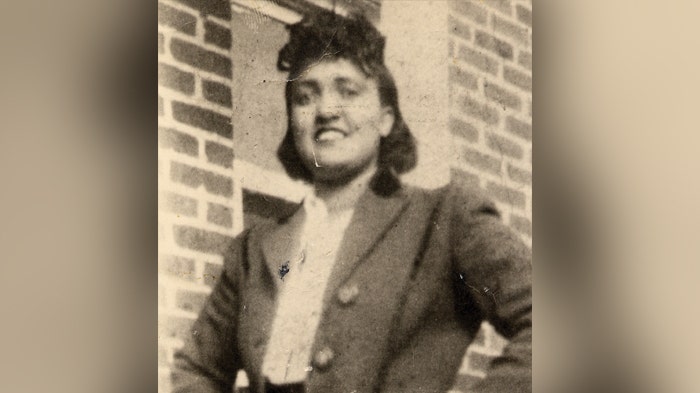
http://a57.foxnews.com/global.fncstatic.com/static/managed/img/Health/0/0/Henrietta%20Lacks_AP_Aug%207%202013.jpg
Henrietta Lacks was a woman age of thirty, living in the 1950’s as an African American woman. She was diagnosed with cervical cancer and died within a year of the diagnosis unfortunately. Before she passed away, physician in charge taking care of Henrietta took her tissue sample without her consent (The Immoral Life of Henrietta Lacks). It was discovered that cells from Henrietta (referred to as HeLa cells) continuously divided without dying, an optimal cell line that scientists were looking for. Previously, researchers had tried to keep the cancer cells alive to advance on with their research projects, but they were unsuccessful. The ethical issue kicks in here, the physician taking the cells without Henrietta or her family’s permission and not even providing them with any monetary compensation for the contribution of the cells.
Before determining whether the doctor’s decision to take the cells from Henrietta without her consent was just or not, I would like to take a look at the issue of autonomy. Whether it was before or during the chemotherapy treatment, she was competent to not only speak for herself but also consider medical treatment decisions. In addition, her family members were present right beside her to give inputs. Therefore, the physician obviously violated the patient’s autonomy when HeLa cells were extracted from Henrietta’s tissue. One defending view might present beneficence that would ultimately result in helping of others as the research in cancer advances. However, this view can’t justify the violation of autonomy that the physician didn’t tell the truth, respect the privacy, and obtain consent to Henrietta and her family (Principles of Bioethics).
Considering justice side of the issue, I want to ask a few questions. What happened to the societal strive to raise the issue of the need to protect subjects from exploitation when research offers no benefit to the patient (Principles of Bioethics)? Was it because Henrietta was an African American woman? Because she had a low social status? Would the physician have informed and gotten the consent had the patient been White? Regarding Henrietta’s race and economic status, it can be inferred that the physician’s action displayed disparities in providing fair opportunity. Beauchamp and Childress’s view on the material justice states that there should be maximum of liberty and property resulting from the exercise of liberty rights and participation in fair free-market exchanges (Principles of Bioethics). Strictly speaking, cells for research purposes should be bought for unless the patient voluntarily donates her cells. Cells are goods that have monetary values, having potential to contribute to great discoveries in the field of medicine. However, Henrietta and her family received nothing in return, not even a thank-you.
One other apparent issue here is the undue profit. I understand that she didn’t participate in a research project as a volunteer to receive monetary compensation but with her cells that would change the future of the research field, her family should have given a financial reward. This injustice of distributing too little, or in this case none, of a payment brings the argument back to implicit disparity possibly due to her race and economic stance in getting cells without Henrietta’s permission that violated her autonomy. In conclusion, Henrietta was the patient who was unjustifiably exploited in terms of autonomy and justice by the medical system of the era in 1950’s, although her cells still strive today contributing tremendously in the field of research.
References:
Beauchamp, Tom L., and James F. Childress. Principles of Biomedical Ethics. New York: Oxford UP, 2009. Print.
Skloot, Rebecca. The Immortal Life of Henrietta Lacks. New York: Crown, 2010. Print.
I agree with this post that the treatment of Henrietta and lacks and her cells was very much unjust. There was no fair exchange of materials for compensation and there was no justifiable distribution of benefit or burden. As you said Henrietta died shortly after her diagnosis but she had many surviving family members that were living without proper educations and lower SES’s and the research lab continued to replicate HeLa cells and profit without any regard for Henrietta’s immediate and extended family. Although the research company did not distribute the burden directly, the family members getting some compensation from HeLa cells could have made a difference in the financial situation of Henrietta’s family and most likely would have effected other aspects as well. To answer one of your question’s: I’m not sure if race played a big role as much as class in this situation because without having proper knowledge to navigate her illness Henrietta was taken advantage of and I feel that research company would have done it to anyone (who could be left in the dark) who’s cells cooperated and were able to be replicated.